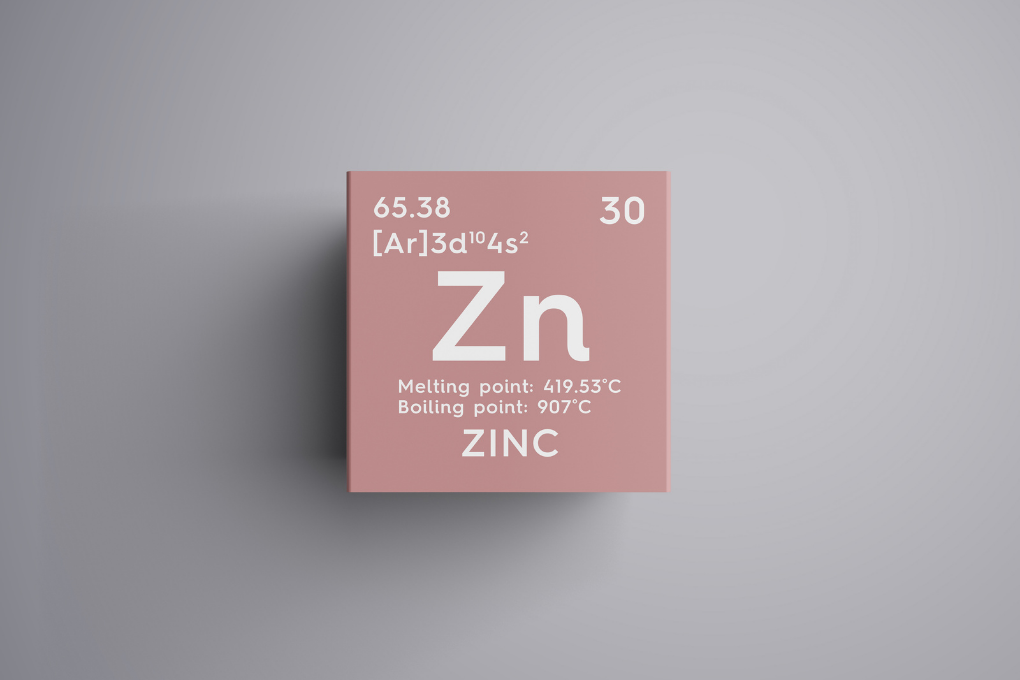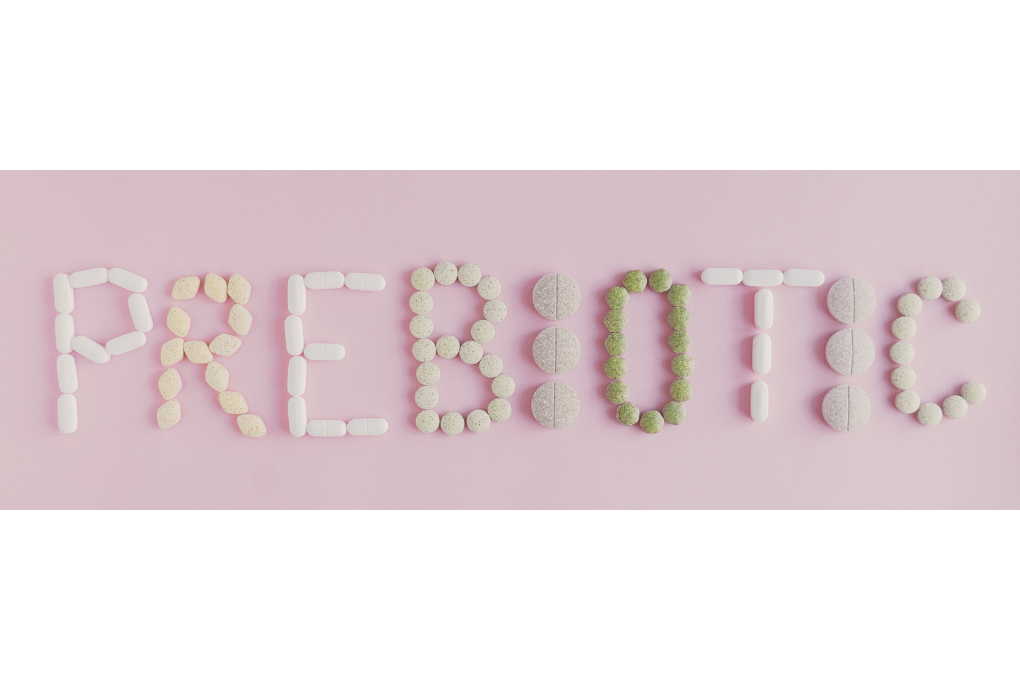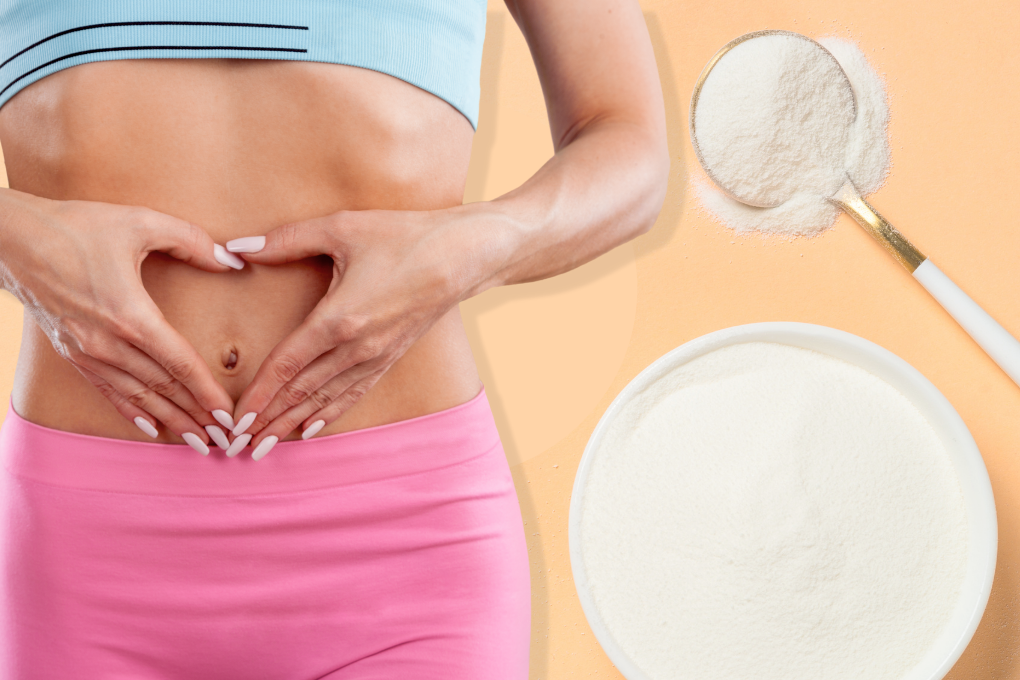Gut Health
The Ultimate Gut Repair Powder: 7 Ingredients to Look For
There are many factors that can affect gut health. Stress, sleep deprivation, medications, and food intolerance are all common causes of digestive issues. Healthy gut function is one of the most important aspects of overall health. Whether you are experiencing chronic digestive issues, brain fog or just want to feel your best, a healthy gut is crucial!
Gut repair powders are an excellent way to help promote optimal gut health. A lot of people don’t know what to look for when purchasing these products, so I’m going to share the main ingredients that should be included in any good gut repair powder.
7 Ingredients to look for in a gut repair powder:
A good gut repair powder will have high-quality ingredients such as glutamine, zinc, aloe vera, turmeric and prebiotics. You may not be able to find all 7 ingredients in 1 gut powder but ideally, it should always have glutamine and zinc. If you also have any of the other ingredients in addition to this, then you probably have a good product in your hand.
Ok, let’s take a deeper look into each ingredient…
Glutamine
This is a major fuel source for your cells lining the gut. Our gut cells have a high turnover, renewing every 4 to 5 days! Glutamine plays a major role in allowing this cell renewal to occur.
It can help heal and seal up holes in this delicate tissue, to prevent further damage. It also helps to create tight junctions between gut cells which can improve a condition known as “leaky gut”.
Leaky gut is when the gut barrier is compromised and allows toxins, undigested food particles and other harmful substances to enter the bloodstream. This can cause a range of issues such as inflammation, autoimmune disease, skin problems, brain fog and more.

Zinc
Zinc is another important ingredient to look for when purchasing a good gut powder. It has an antioxidant effect on the digestive tract and it supports intestinal health and immunity too! This means zinc will help fight against inflammation and infection. Zinc deficiency has also been linked with many digestive problems such as diarrhoea, constipation, leaky gut syndrome and Crohn’s disease.
Zinc helps maintain the integrity of intestinal cells. It plays a crucial role in regulating the high turnover of new gut cells, allowing for the regeneration of new cells. Zinc deficiency has been linked to an overly permeable gut lining which can lead to a leaky gut.
Lastly, zinc is essential for creating enzymes in the gut that allow for efficient digestion. When we eat food, our gut produces enzymes that help break food down into smaller chunks so we can absorb the nutrients. Without zinc, our enzymes may not function properly and may be a cause of digestive issues such as diarrhoea, constipation, or indigestion. It can even cause tiredness and low energy levels.
Aloe Vera
This plant has been used medicinally for centuries due to its powerful anti-inflammatory properties. It can help soothe and heal the gut lining while reducing digestive discomfort.
It also contains prebiotics which feeds the good bacteria in your gut, helping to promote healthy digestion. Aloe vera is a great addition to any healing gut powder.
Turmeric
This bright yellow spice is well known for its anti-inflammatory effects. Curcumin, the active ingredient in turmeric, has been shown to be beneficial for many health conditions, including irritable bowel syndrome. It works by reducing the production of inflammatory cytokines in your gut (the chemical messengers that trigger inflammation).
Turmeric is also a powerful antioxidant which means it will help you fight against free radicals and toxins while preventing oxidative damage to your cells. This can improve digestive function, reduce bloating and gas after meals.

Prebiotics
Prebiotics are specific plant fibres that stimulate and nourish beneficial bacteria in the gut. In fact, they are the main food source that feed the good bacteria in your gut. They help to increase their numbers and promote healthy digestion.
Let us note here that PRE-biotics are a different thing to PRO-biotics. The two are often mixed up or thought of as the same thing. Remember probiotics are the strains of good bacteria whereas prebiotics are the food that feeds them.
The best prebiotics come from plant sources. In a gut repair powder, common prebiotics used include inulin, gum resin, or apple pectin.
Slippery Elm Bark
Slippery elm bark is traditionally used in western herbal medicine and is a natural demulcent which means it helps to soothe and protect the gut lining. It contains mucilage, a thick gel-like substance that coats and protects the gut from irritation. This can help to reduce inflammation and heal any damage to the gut lining.
Vitamin A (Retinol palmitate)
Vitamin A has antioxidant properties that help to protect the cells in your gut from oxidative damage. This can help reduce free radical activity and prevent cellular aging which can be a cause of leaky gut syndrome, inflammation, and digestive problems caused by food intolerances.
Vitamin A has also been shown to be vital for the maintenance of the gut barrier. It helps to keep the gut cells healthy and functioning properly.
There are also new studies coming out to show the important role of vitamin A on your gut microbiome and the immune system. These studies have shown that vitamin A in the intestine may help prevent the immune system from becoming overactive – what happens in autoimmune conditions like Crohn’s disease.

Conclusion
So there you have it! The 7 main ingredients to look for when purchasing a gut repair powder. Make sure your powder contains at least two or preferably more of these ingredients and you’ll be on your way to better gut health!
Disclaimer: This blog is for informative purposes only and should not be taken as health advice. Please speak with our pharmacists, nutritionists or your health practitioner before making any changes to your health regimen.

Alexandra Shepherd
Pharmacist
This blog post was written by Alexandra Shepherd, holistic pharmacist at Nourish Health.



